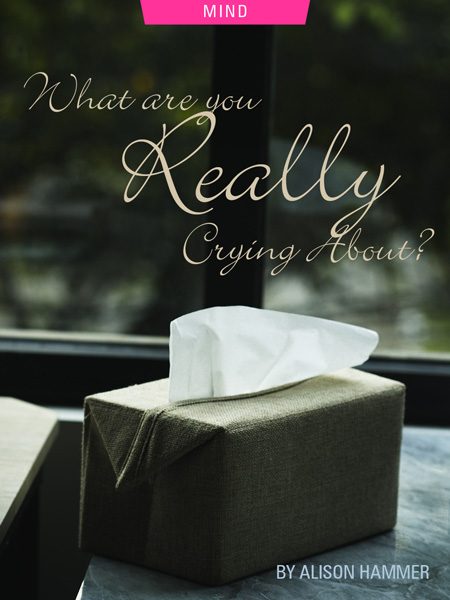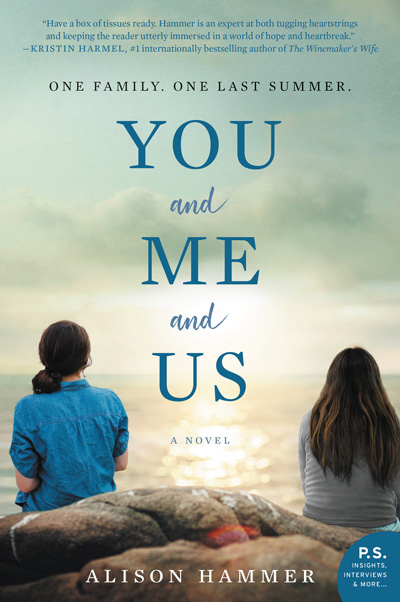
What’s happening beneath the tears we cry? Whether they are tears of joy or sorrow — they connect us to pieces and even forgotten parts of ourselves.
—
“I love to cry — as long as it’s not about my life.” It was a simple statement, a line I’ve said a thousand times before. But when your dad is a shrink — like mine — you never know where a conversation might take you.
A few months ago I was visiting him down in Destin, Florida. We were sitting outside, having coffee and breakfast while we read our separate books. Mine was a tearjerker — my favorite kind to read.
I don’t remember exactly what prompted me to share the thought, but I remember his response.
“What exactly makes you cry,” he asked. “What doesn’t?” I laughed.
By the tone of his voice, I knew what was coming next: he was going to find a way to psycho-analyze me.
It’s true. I’ve been known to shed a tear over anything and everything. Movies, books and TV shows, of course. But I’ve also lost it over a sad song or even a commercial. I always thought it was because I was really empathetic to the pain and suffering of others.
But according to Dr. Randy Hammer, also known as my dad, it’s more of an egocentric concept.
My first reaction to this was to get defensive — I don’t think of myself as egotistical. But he went on to explain that even when you think you’re crying about something else, you’re really projecting that emotion from yourself.
I was intrigued at this breakfast-table-analysis of my psyche, and asked him to explain.
He said when something makes you cry, it’s because whatever you’re watching, reading or listening to triggers a moment or a memory in your life that has significant emotional energy attached to it.
He asked the question again — what makes me cry — and I tried to think about it. To look back on all the times I’ve cried and see if there was a common denominator. I couldn’t put my finger on anything specific, so I tried to think thematically. The things that came to mind were stories of friendship and family, of loss and love.
I thought back to one of my favorite movies of all time, Beaches. A story of two best friends who are nothing alike, yet have a bond that makes them almost like sisters. The movie spans three decades of the ups and downs of their friendship.
All these years after the movie came out, and even though I know how the story ends, it still makes me cry the ugliest kind of tears.
Prompted by my dad’s theory, I thought back to the close friendships in my life…
and my middle-school best friend, Amy Rae Wilmot, came to mind.
I was short and round with brown hair, and Jewish. She was tall and skinny and blonde and her father was in school at a Lutheran Seminary. But we were BEST friends. We signed every note we passed in class with LYLAS, love you like a sister.
The summer after eighth grade, Amy’s dad graduated from the seminary and moved their family all the way from Missouri to North Carolina. I was devastated. And a lot of tears were shed.
I remember the week after she left, I had an appointment at the eye doctor. They were about to do some sort of test that involved poking my eye with a strip of paper to check my tear ducts. I laughed and told the doctor that I knew with certainty my tear ducts were A-OK.
If my dad’s theory was right, then maybe all the times I’ve cried over scenes or songs that deal with the loss of a friend, I was recalling how it felt when I was thirteen and suddenly alone. Not sure who I would sit next to during lunch, who I’d have slumber parties and inside jokes with.
My dad gave me another example, one that related to his life. He told me that he always gets emotional when he sees a father-son reunion. The reason — it triggers all of the emotions tied to the loss of his own father over twenty years ago. When my dad sees those happy reunions, it reminds him, sometimes on a subconscious level, of something he can no longer have.
But it’s not only sad memories that bring us to tears. He said positive memories can have the same effect, flooding us with the emotional energy tied to different moments in our lives.
The more I thought about my dad’s theory, the more it made sense, especially in the context of my life. You’d think that as often as I cry about things that happen to other — even fictional people, I would shed my fair share of tears about things going on with me.
But I don’t.
I know it’s not the most healthy habit, but I tend to avoid dealing with my own negative emotions. I either push them down or channel them onto a page. I’m not a journal writer, but my debut novel, You and Me and Us, is definitely a tearjerker. People cry while reading the book, and I cried a lot while writing it. Which was unfortunate on the days I wrote in public at a coffee shop!
Whether my tears are brought on by something I’m reading or something I’m writing, I usually feel better after a good cry. According to my dad, there’s a reason for that. He explained…
Crying can be cathartic because it releases endorphins — feel good chemicals that can help ease physical and emotional pain.
So go ahead and pick up that sad book, play that sad song and watch that sad movie. Especially now with so much uncertainty in the world, we could all use a good cry. I know I could!
And the next time I try to explain to someone why I’m drawn to tearjerkers, I might have to modify my answer. Because even when I think I’m not crying about my own life, it turns out, maybe I am.
You may also enjoy reading Emotional Intelligence: What is it and Why Should You Care? by Shawn Mike
